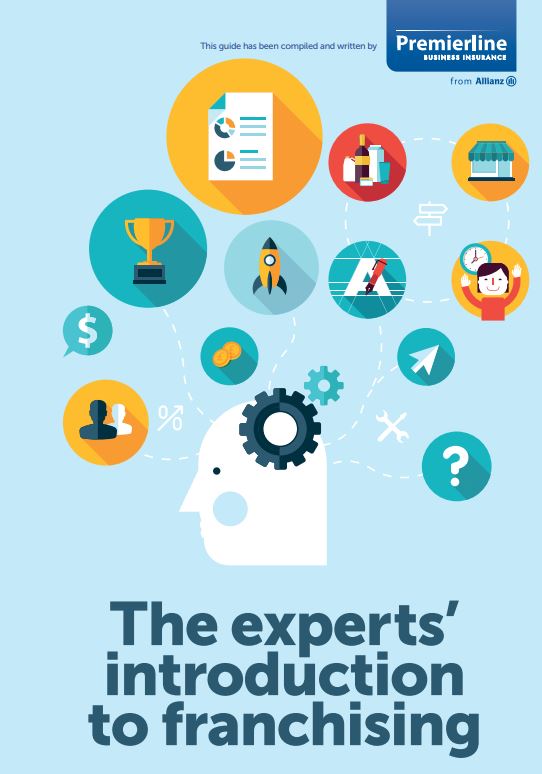Franchisee advantages and disadvantages
What is the difference between a franchisor and a franchisee?
Before we delve into the advantages and disadvantages for the franchisee, it's important to understand the difference between being a franchisor and franchisee as both terms often get confused.
What is a franchisor?
A franchisor is the person or company that sells their business model to others and offers their services, such as training and support, in order to help them run it.
What is a franchisee?
A franchisee is someone who buys a franchise with the intention of running it themselves. They pay royalties back to the franchisor based on sales made by their store.
We also have a separate guide on What are the advantages and disadvantages of franchising.
Summary of advantages and disadvantages for the franchisee
Advantages
- You can become your own boss
- Get training, support and brand recognition
- Benefit from the Franchisor's expertise
- Franchising is usually easier to finance than an independent start-up
- Franchise owners get discounts on supplies because of their buying power
Disadvantages
- Limited access to existing customer information
- It can be expensive to buy a franchise
- It can be hard to find a franchisee partner who is a good fit for you
- The franchisor may offer more franchises than the market can support
- You have less freedom and control
Advantages as a franchisee
1. You can become your own boss
You can become your own boss. If you've ever dreamed of running your own business, franchising offers a great way to do it.
It's also possible for business owners with no previous experience in franchising to achieve success because more often than not the established brand name provides an instant customer base which reduces risk for the entrepreneur.
2. Get training, support, and brand recognition
When you become a franchisee, you have access to the support of your franchisor. This can include training, marketing support, accounting assistance and even operational tips. The cost of this training and support can be a great help for an inexperienced business owner or entrepreneur who is just starting out.
However, it's important to remember that these services come at a price. Many times, this price will be passed on to you as part of the initial payment or ongoing royalties that you pay to maintain your position in the franchise system (and sometimes both). In addition, if your unit is limited by its size or location—the two main factors that define whether you are eligible to open shop—you may not receive benefits such as advertising budgets from headquarters until after reaching certain milestones within your territory which can take years depending on how long they've been operating in a particular location.
3. Benefit from the franchisor's expertise
4. Franchising is usually easier to finance than an independent start-up
It's usually easier to finance a franchise than it is to finance an independent start-up.
The franchisor will help you find financing and can even lend you money if you need it. You won't have to go through the same process that an independent business would, which can be time-consuming and difficult for someone who has no previous business experience. The franchisor also doesn't want their franchisees failing, so they'll make sure that everything is in order before signing off on your loan application (and yours will probably look better than many other applications because of the work that's already been done by the franchisor).
You may also be able to borrow from banks or private investors who are willing to loan money based on the strength of your deal with a particular brand.
5. Franchise owners get discounts on supplies because of their buying power
Franchise owners often get discounts on supplies because of their buying power. These discounts are part of the franchise package and don't always apply to independent businesses or non-franchise groups, who may not be able to negotiate large orders with suppliers. Most franchisors will require you to spend a certain amount on supplies each year in order to qualify for these discounts.
The specific pricing and terms of each supplier vary from franchisor to franchisor, so be sure to read the fine print before signing on as a franchisee. Some franchisors might charge their franchisees an additional fee for the discounted supplies, whereas others may offer them at no extra cost.
Disadvantages as a franchisee
1. Limited access to existing customer information
2. It can be expensive to buy a franchise
When thinking about how much a franchise will cost, you should know that the amount of money involved in buying a franchise varies. It all depends on whether you want to buy an existing or new franchise, and what kind of business model it's based on.
- An existing franchise can be expensive; especially if they are successful businesses.
- New franchises are cheaper than buying an existing one because they haven't been around for very long and don't have as much experience behind them yet. The initial costs associated with opening a new store may be more affordable than purchasing something already established but keep in mind that if this type doesn't work out well then there may not be any profit left at all!
3. It can be hard to find a franchisor who is a good fit for you
As there will likely be a close working relationship between franchisor and franchisee, you need to make sure it’s a good fit in terms of personality, goals and finances.
Let's look at these benchmarks:
- Personality: The franchisor and franchisee need to share values and vision for the company. They'll have to be able to work well with others and both should be flexible enough when things don't go smoothly or plans change unexpectedly during the course of business operations.
- Goals: Your goals for the company should be aligned with those of your future franchisor. Maybe they want to expand into international markets while you're content with staying local or maybe they want to focus only on sales and marketing while you want an all-encompassing holistic approach.
- Financials: This can be tricky because both parties have different expectations for how much money they should make from the business. The prospective franchisee should not expect to make a profit immediately when dealing with start-up costs and overhead expenses. They also need to be aware of their operating expenses before renting out storefront space or purchasing equipment.
4. The franchisor may offer more franchises than the market can support
The franchisor may be overly optimistic about the number of franchises they can sell. This means that more franchises are sold than the market can support. If this is the case, franchisees will not make as much money as they were expecting, and you could lose money in your investment.
The franchisor may not be able to provide all the training and support promised for your franchise. They may have underestimated how much work it takes to help existing franchisees succeed or new ones get started; if this happens then you will not get what you paid for when buying into a franchise agreement with that company. It is important to consider whether a particular company has enough support staff before purchasing a franchise from them because if they do not then there is likely going to be issues down the road which could result in legal action being taken against both parties involved (i.e., yourself).
5. You have less freedom and control
When you franchise, your business will operate under a set of rules and procedures that are laid out by the franchisor. The franchise agreement will specify how your business must be run, including what products and services you offer, how you promote those products and services, who can work at the store or office, how to handle complaints from customers and employees alike—the list goes on and on.
What's more is that these rules will likely change over time as the franchisor updates its system in order to better compete with other franchises in their field (and/or make more money). As such, if you're not careful about sticking with these constantly evolving regulations it's possible that your franchise could lose its competitive edge against other franchises in said field.
Becoming a franchisee business owner
The experts guide to franchising


















